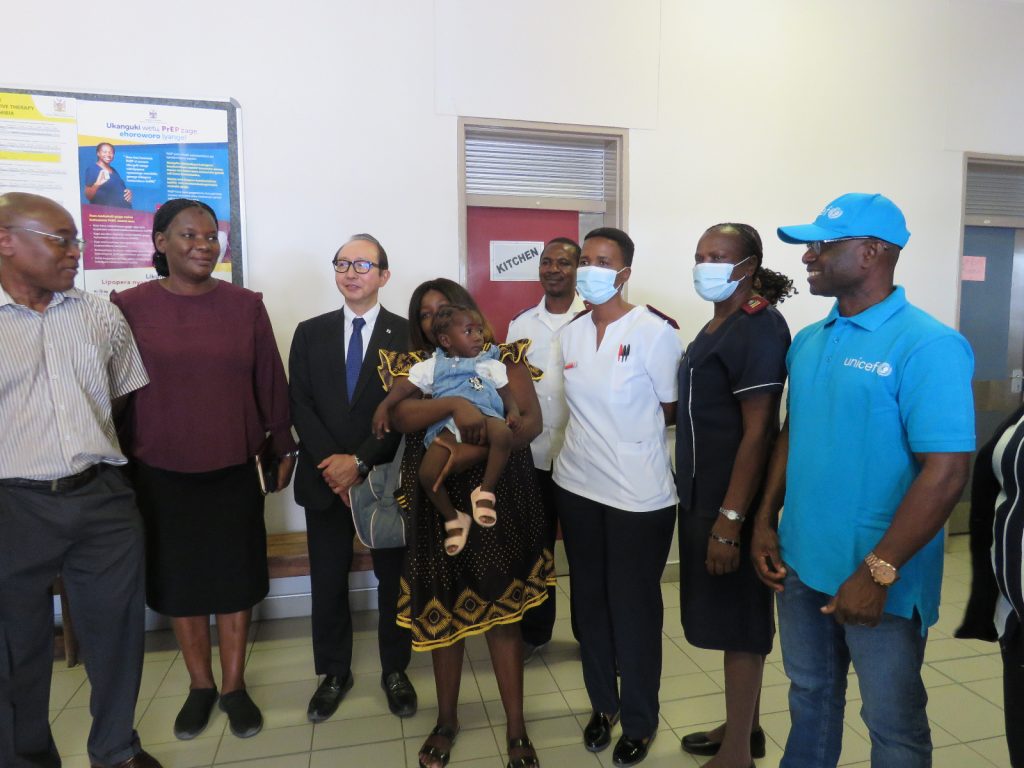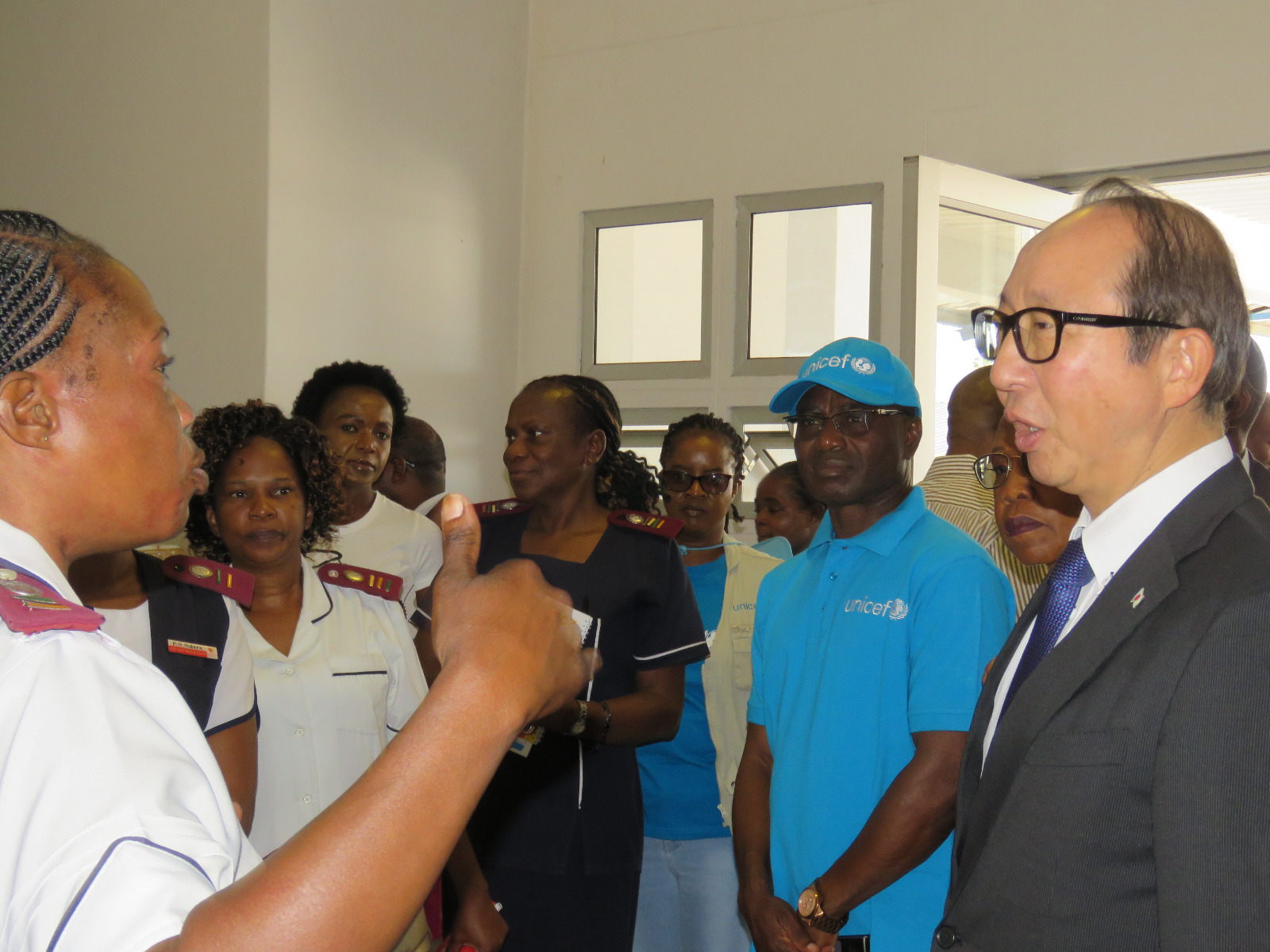Japanese ambassador to Namibia Nishimaki Hisao says he is impressed by the way Namibia is improving its health system to the benefit of children and expectant mothers.
He said this after touring the maternity ward at Rundu Intermediate Hospital in the Kavango East region with United Nations Children’s Fund (Unicef) representative Samuel Ocran and UN country representative Pholang Phororo last week.
The ambassador was shown the antenatal ward, where women are taught about healthy behaviours to better understand warning signs during pregnancy, and receive social, emotional, and psychological support at this critical time in their lives.
“I am overwhelmed with joy and gratitude to see first-hand how our support to Namibia is making a huge difference and benefiting the grassroots, especially mothers and newborn babies,” Hisao said.
Maternity department nurse managers explained to the visitors that there were many young mothers in the antenatal care unit.

“After they deliver, we refer them to social workers for counselling and advice on contraceptives so they can prevent unplanned pregnancies,” nurse manager Beatrice Kawana said.
Young mothers are made aware of the consequences of having babies young, as this could lead to malnutrition when they have to leave the babies at home to go back to school.
“The baby must be breastfed for at least six months, but they are only breastfed for one or two weeks,” Kawana said.
She said the hospital also promotes the use of pre-exposure prophylaxis (PrEP) because teenage mothers are among those most affected.
“With discordant couples, we advise that one be on PrEP while the other is on antiretroviral therapy (ART), if they want to have a baby, to reduce the chances of HIV transmissionfrom mother to child,” Kawana says.
The delegation made a stop at the premature babies’ unit, where a nurse explained the various ways of caring for babies, including the ‘kangaroo method’ where the mother cuddles her baby for about three hours a day to promote bonding between them.
Hisao, Ocran, and Phororo were also shown the cold chain facility for storage of vaccines and medicines, which were procured with Japan’s funding of US$1,6 million (N$32 million) with the support of Unicef.
“These nurses are not technicians, but they value the training they received. The way they explained the use of the cold chain equipment, the storage of vaccines, how they monitor the temperature, check expiry dates to make sure they do not complicate child immunisation programmes, shows they are competent and have been empowered,” Ocran says of the trained nurses.
Phororo stressed the importance of partnerships saying UN agencies cannot do it on their own.
“This is an excellent example of a partnership where we have the government of Japan, contributing a grant, and Unicef, with technical capacity, to support innovation. They came together and at the end of the day we want a population of strong and healthy women who will give birth to children who are also healthy and strong and who will grow up to contribute meaningfully to society,” she said.
– email: matthew@namibian.com.na
Stay informed with The Namibian – your source for credible journalism. Get in-depth reporting and opinions for
only N$85 a month. Invest in journalism, invest in democracy –
Subscribe Now!






